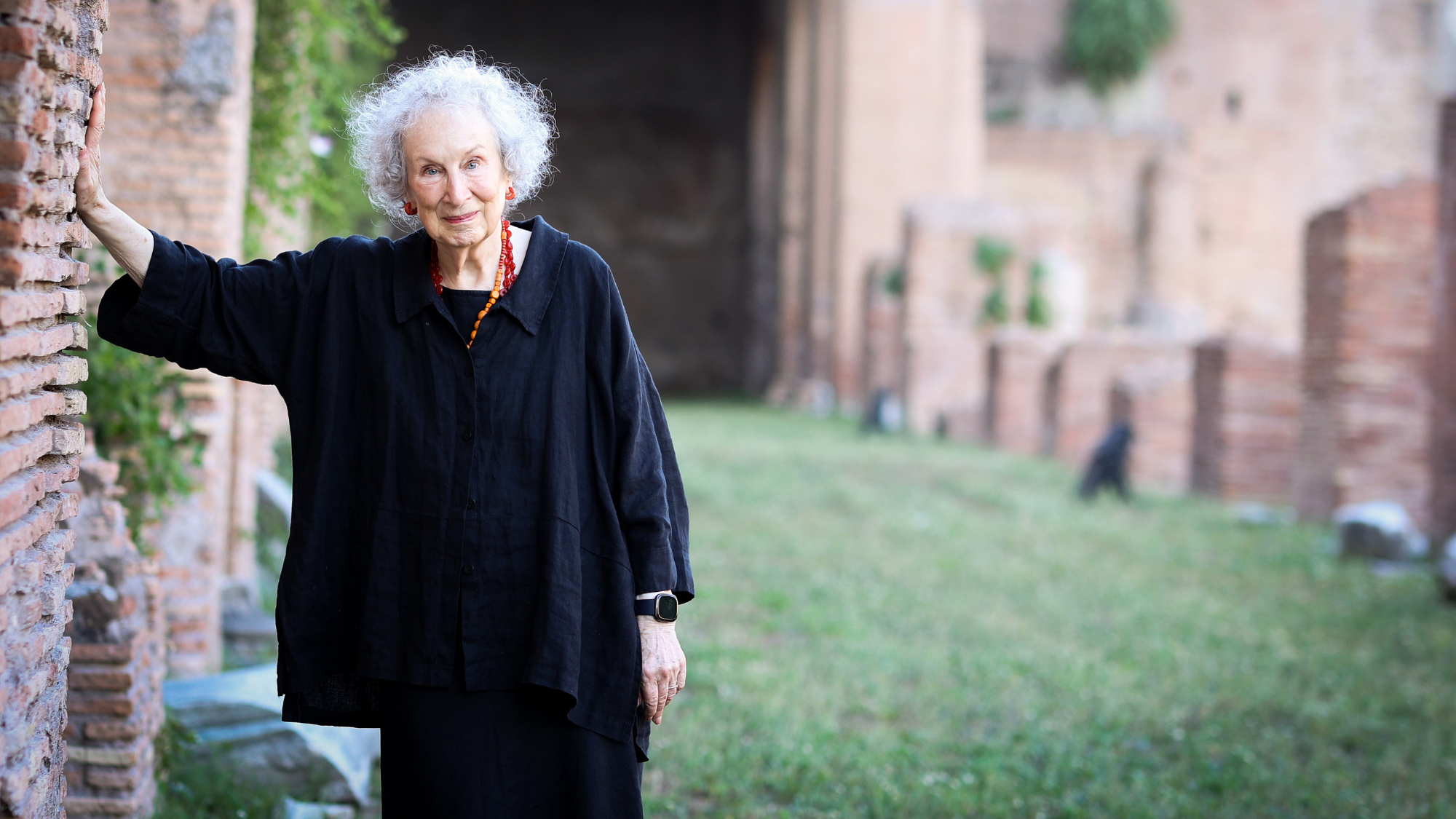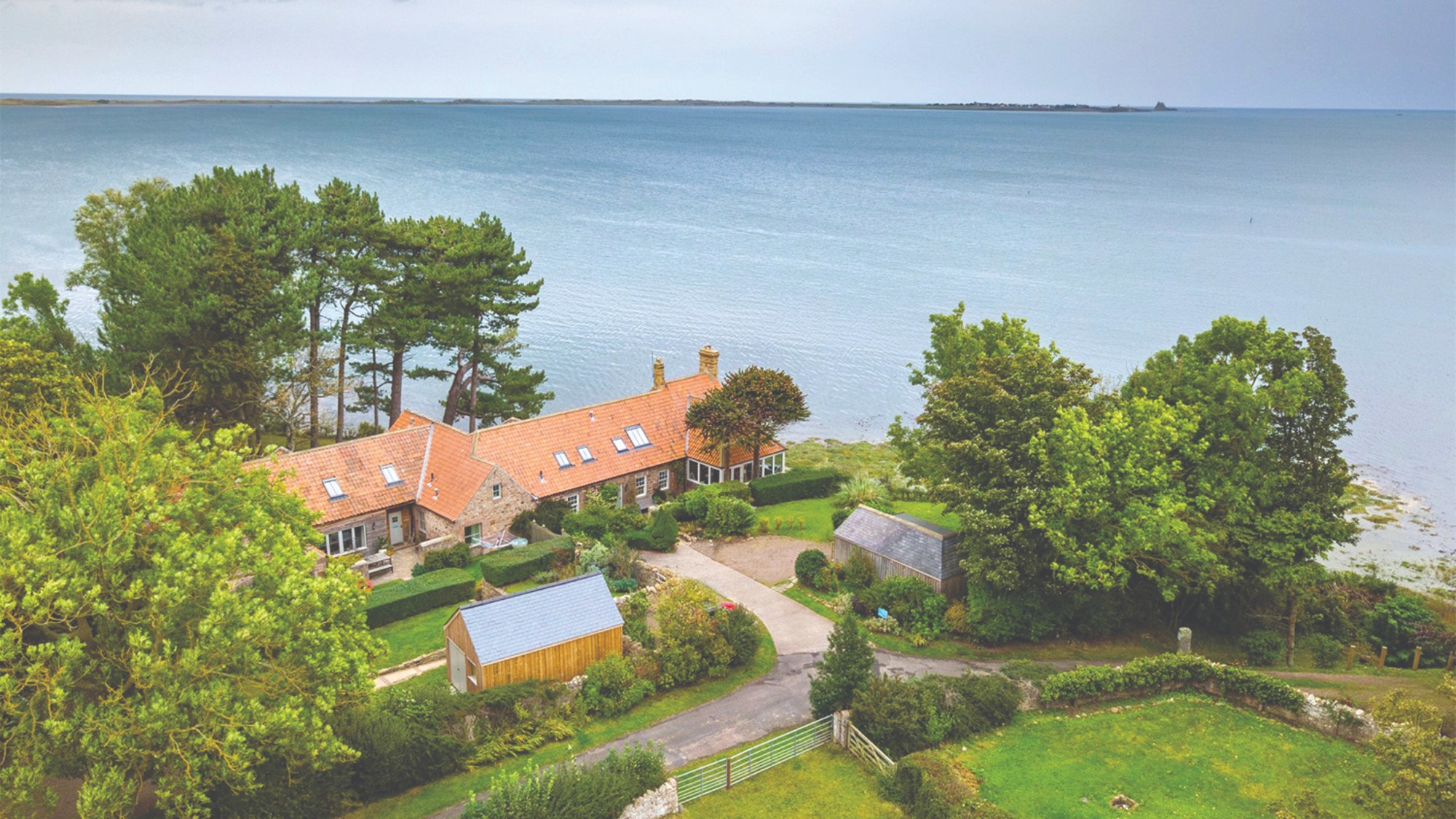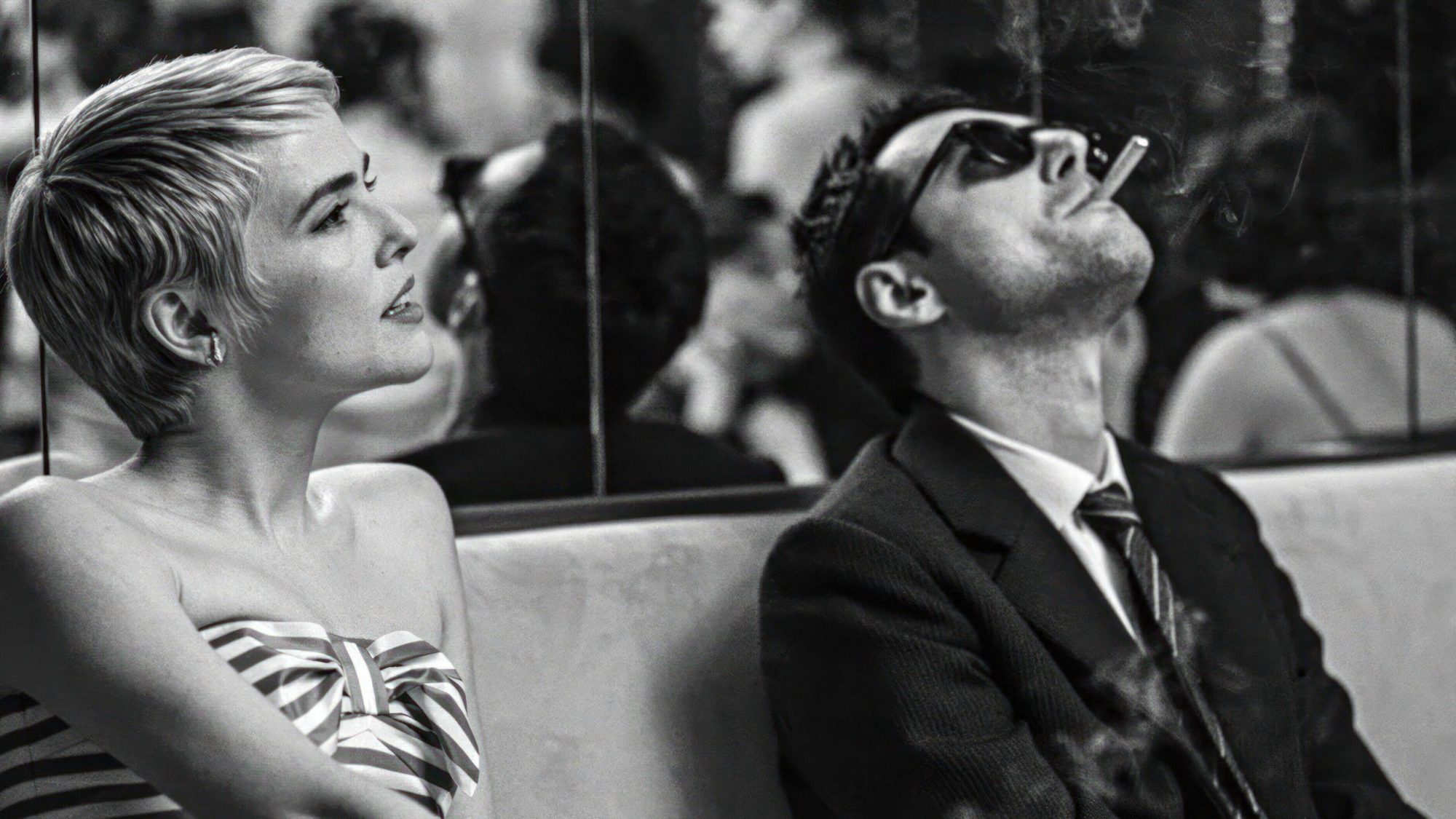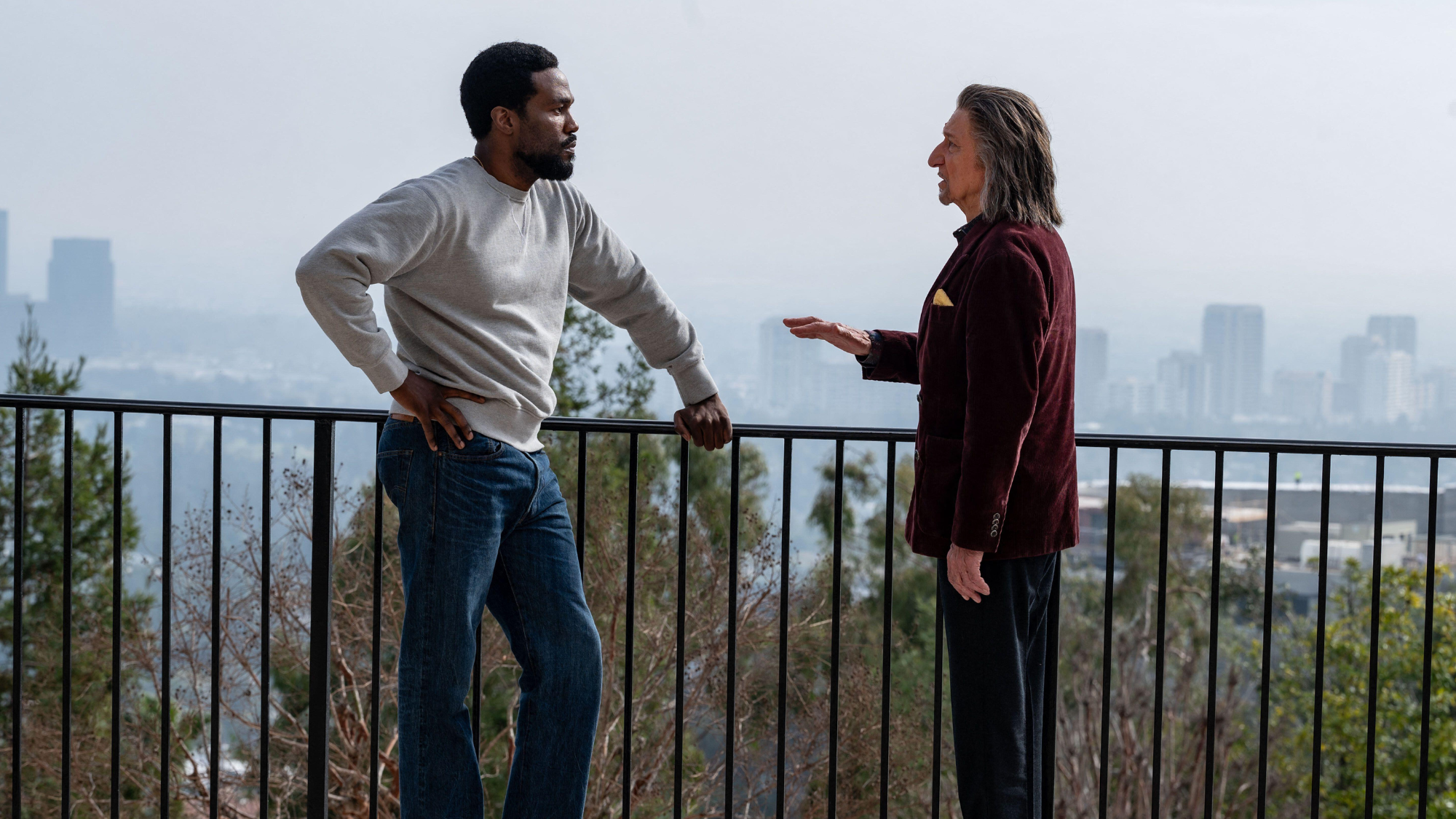Best biographies and memoirs to add to your reading list
Dive into these compelling life stories – from Margaret Atwood to Cher

A free daily email with the biggest news stories of the day – and the best features from TheWeek.com
You are now subscribed
Your newsletter sign-up was successful
The best memoirs and biographies blend fascinating anecdotes with deeper meditations that make us reflect on our own lives. From poignant coming-of-age tales to candid confessionals, these are our top picks.
Troublemaker
“Courage of a steely, smiling and peculiarly English kind was a quality the six Mitford sisters possessed in spades,” said Miranda Seymour in the Financial Times. And as Carla Kaplan demonstrates in her “well-researched” biography, none was “pluckier” than Jessica (or “Decca”) Mitford – the “witty, subversive fifth sister” who devoted her life to left-wing causes. In 1937, aged 19, Decca eloped to Spain with her “handsome cousin” Esmond Romilly to support the Republicans. The couple married, and moved to America, but Esmond died in 1941, while serving in the Canadian Air Force. “In the wake of his death, Decca joined the Communist Party”, and soon after married the “brilliant” Jewish lawyer Bob Treuhaft, said Anne Chisholm in The Spectator. They settled in Oakland, California, and became ardent civil rights campaigners. Decca also started writing: a “surprisingly successful” pamphlet skewering left- wing jargon was followed by her 1964 “masterpiece”, “The American Way of Death”, “exposing the funeral racket”. Kaplan, a distinguished American cultural historian, sets out to chart Decca’s transformation “from aristocrat to activist”. Her “impressive” biography confirms that Decca was “surely the only one of all the Mitfords worth taking seriously”.
Not that her sisters took this view, said Kathryn Hughes in The Times. One of the revelations of this book is “just how bitchy” about her they were: “their letters are stuffed with nasty remarks about her Jewish husband, black son-in- law and middle-aged spread”. Kaplan’s own agenda, refreshingly, is to present Decca as a pioneer of “social justice”. “The result is a book that is light on the usual beats of Mitfordia – the pranks, the frocks, the casual antisemitism – and pays Decca the real compliment of treating her as a public intellectual.”
The Week
Escape your echo chamber. Get the facts behind the news, plus analysis from multiple perspectives.

Sign up for The Week's Free Newsletters
From our morning news briefing to a weekly Good News Newsletter, get the best of The Week delivered directly to your inbox.
From our morning news briefing to a weekly Good News Newsletter, get the best of The Week delivered directly to your inbox.
Joan Crawford: A Woman’s Face
Joan Crawford was the “ultimate” Hollywood star, said Alison Kerr in The Telegraph. Born Lucille LeSueur in Texas in 1906, she overcame an impoverished, rootless childhood to become one of the most celebrated actresses of the 20th century – starring in hits such as “Grand Hotel” (1932), “The Women” (1939) and “What Ever Happened to Baby Jane?” (1962). Her name wasn’t the only artificial thing about her: no actress worked harder at “maintaining her image”. From the start, she was fiercely ambitious; and even in old age, she would spend two hours putting on her make- up, claiming she owed it to “everyone ... including the doorman ... to look like Joan Crawford, movie star”. Yet this “carefully created” image was “sabotaged” in late 1978, a year after her death, by the publication of “Mommie Dearest”, an “explosive memoir” by her adopted daughter Christina Crawford, which portrayed her as “abusive and controlling”. In this “delicious” and sympathetic biography, Scott Eyman takes issue with “Mommie Dearest”. Yes, he acknowledges, Crawford could be a bit “bonkers” – among her odder demands was that all her film sets be kept at 14°C – but she was a “three-dimensional, complex character”. Above all, Eyman suggests, “she simply did not know how a normal family would function – because growing up she had never experienced it”.
Eyman is a shrewd analyst of Crawford’s acting, arguing that her “flinty-yet-heartsore attitude marked her as a forerunner to today’s internet influencers”, said Ty Burr in The Wall Street Journal. Off screen, he follows her “though four marriages”, plus an extensive “laundry list of lovers”. Crawford emerges, ultimately, as a rather sad figure – a fiercely intelligent woman with a “lifelong insecurity” that made her “hide within a statue of her own making”.
Book of Lives
Margaret Atwood is a “reproach to lazy authors”, said Nilanjana Roy in the Financial Times. Now 86, Canada’s pre-eminent author has produced “a treasure hoard of more than 50 books” – not just novels such as “The Handmaid’s Tale” (1985) and “Alias Grace” (1996), but short stories, poetry, essays and children’s fiction. Now comes “another outsize gift: a big fat juicy memoir, as compulsively readable as her best fiction”. “Book of Lives” is “not a slice of life but the whole works”, said Blake Morrison in The Guardian. Atwood admits to fearing it might be boring (“I wrote a book, I wrote a second book, I wrote another book...”), but there is much to enjoy besides the details of her writing life. She shares her formative experiences, as when a group of girl friends turned on her in 1949. She also shares her “wackier side” (she is fascinated by horoscopes and palm reading) and dispenses domestic wisdom (“what I don’t know about toilet-cleaning isn’t worth knowing”). The result is “sharp, funny and engaging”.
Her personal life is touchingly evoked, said Edmund Gordon in The New Statesman. Her public life, less so. Atwood never “paints herself in a bad light”, and writes “wildly flattering things other people have said about her”, without “a flicker of irony”. She also rewrites “matters of public record” to her own credit – as when she claims that when “The Handmaid’s Tale” was shortlisted for the 1986 Booker Prize, “it was rare for a woman to be nominated”. (It wasn’t.) But she seems to have perfect recall of all slights against her. Despite now being, as she says, “screamingly famous”, she never shies away from settling the pettiest of scores with poets who died 30 years ago, or journalists who once wrote disobliging reviews. “There are police databases that it’s easier to get your name expunged from than Atwood’s shit-list.”
A free daily email with the biggest news stories of the day – and the best features from TheWeek.com
Wings
Paul McCartney’s post-Beatles group, Wings, was “one of the most successful bands of the 1970s – and one of the strangest”, said Ian Leslie in The Guardian. They formed in 1971, a year after the Beatles split, because “McCartney yearned to play before audiences again” – something he hadn’t done since the Beatles stopped touring in 1966. And so he asked his musically untrained wife, Linda (above, with Paul), to “help him put together a new group”. Things got off to an inauspicious start, when their first album, “Wild Life”, was released to a “round of jeers”. They followed that with an “unplanned tour of British universities”, which involved them turning up at campuses, finding the student union, and asking “an open-mouthed social secretary if they fancied a gig that evening” – for which they’d charge 50p per ticket. Edited by cultural historian Ted Widmer, this “compelling” oral history, based on interviews with McCartney and other band members, recounts the decade Wings spent together. Telling a “story with elements of ‘Spinal Tap’ and ‘Wacky Races’”, it provides a “portal into a more eccentric age of pop”.
After the Beatles, McCartney said he had one aim: “to grow up”. This book tells the “astonishing, unruly story of how he achieved that goal”, said Victoria Segal in The Sunday Times. By adopting a “raggle-taggle” approach – Wings would tour with his and Linda’s young children in tow, along with their sheepdog Martha – he created a rock’n’roll life based on “domesticity and hippy ideals”, while reconnecting with the excitement of the Beatles’ early years. In time, Wings became more mainstream: their 1973 album “Band on the Run”, recorded in Lagos during a cholera epidemic, reached No. 1 on both sides of the Atlantic, and they followed it up with the “huge” “Wings Over America” tour of 1975. Partly because of their endlessly revolving line-up (Wings went through three lead guitarists and four drummers), their music declined in quality later in the decade, said Neil McCormick in The Daily Telegraph. Then, in January 1980, McCartney was arrested for marijuana possession at Tokyo airport. “It was the maddest thing in my life,” he recalls. “I put a bloody great bag of the stuff right on the top of my suitcase.” Although he spent just nine days in prison, the ordeal sapped his enthusiasm for touring – and Wings disbanded shortly afterwards. Despite the tone being at times “a little hagiographic”, “Wings” is full of “amusing observations” – and provides a fascinating look at the band that, as Alan Partridge quipped, “the Beatles could have been”.
On Friendship
The novelist Andrew O’Hagan’s latest book is a “paean to the joys and power of friendship”, said Michael Kalisch in The New Statesman. It consists of eight “amiable” essays, each devoted to one of his friends. In one, he describes his “first best friend”, Mark MacDonald, a boyhood neighbour in North Ayrshire. Later pieces are about friendships “forged in the literary world”, such as with Seamus Heaney and Edna O’Brien. For O’Hagan, the best friendships are an antidote to the constrictions of family, said Anthony Cummings in The Guardian. He recalls his boyhood home as a “zone of adversities”, from which friends liberated him. Friendship, he writes, can be a “passport to being the kind of person you wanted to be”.
There’s a lot of “name-dropping” in these pages (Julian Assange, Richard Burton and Mark Rylance all figure), but O’Hagan “makes up for it with wit and good humour”, said Ceci Browning in The Times. Some of the pieces are truly moving – such as his account of another teenage friend, Keith, who on learning he was terminally ill, called on O’Hagan for support. More than romantic love, O’Hagan feels that friendship “describes the shape of your life” – and this joyous book suggests he is right.
Fly, Wild Swans
Few non-fiction books have had as much impact as Jung Chang’s 1991 memoir “Wild Swans”, said Helen Brown in The Daily Telegraph. Intertwining Chang’s childhood with the stories of her mother (pictured) and grandmother, it sold more than 13 million copies (despite never being published in China) and gave many Western readers their first glimpse of life under Chinese communism. Now, more than three decades on, Chang has written a “magnificent sequel”, which picks up where “Wild Swans” left off: with her move to England, aged 26, in 1978. Chang describes revelling in Western freedoms, including sex (a “dirty word” in China), and charts her development as a writer. Less happily, she also describes the deterioration of her relationship with her homeland. She used to go there regularly, but this became more difficult following her “devastatingly critical” 2005 biography of Mao Zedong (co-written with her husband Jon Halliday), and her last visit was in 2018. She dedicates this book to “my mother, whose deathbed I am unable to visit”.
Chang’s early life in Britain, on a “study scholarship”, was closely monitored by the Chinese state, said Kathryn Hughes in The Sunday Times. She was required to wear a “lumpy Mao suit” and was told never to venture into a pub, because it would be “full of naked women gyrating”. But Chang was a quick learner. She got a PhD in linguistics; then came “Wild Swans”, and a “Cinderella-like transformation”. By the mid-1990s, she was living in “swanky Notting Hill”, and was “chums with Martin Amis”. In these pages, she has again used “intimate experience” to make sense of larger events. It’s a method that “works as triumphantly today” as when “Wild Swans” “burst onto the scene”. This book feels in places like an “uneasy hybrid”, said Boyd Tonkin in the Financial Times. Parts of it “revisit in an abbreviated version” stories first told in “Wild Swans” – such as her Manchurian grandmother’s experiences of foot-binding. New readers might want first to encounter such material in the original. As a memoir, though, it’s very “engaging”, said Rana Mitter in Literary Review. Chang is “thoughtful without being sentimental”, and writes illuminatingly of her life both in England and China. Overall, it provides a timely insight into “the complexities of processing” history, family and personal identity, while dealing with a regime that insists on defining history, and keeping it “firmly in the past”.
How to Lose Your Mother
Molly Jong-Fast is the daughter of Erica Jong, best known for her groundbreaking and bestselling 1973 novel "Fear of Flying", about a liberated woman's quest for pleasure, said Alice O'Keeffe in The Times – and in which she coined the phrase "zipless f**k" to denote casual sex. As Jong-Fast relates in her "ruthlessly honest and often hilarious memoir", Erica's abilities as a writer weren't matched by her parenting skills. When her daughter was small, "she was never home, always travelling or out on the town". Erica's husband, Jonathan Fast, would try to get her to spend an hour a day with Jong-Fast, but she simply "couldn't do it": the most she'd manage would be half an hour. Eventually, Jong-Fast's parents divorced, and Erica slid into alcoholism ("always denied") and became increasingly obsessed with her waning fame. Jong-Fast developed problems of her own – including an eating disorder and drug and alcohol addiction – but she overcame these and is now a "devoted mother to three children", as well as a successful journalist and podcaster.
Her memoir is partly an account of her childhood, but also a description of her "annus horribilis" of two years ago, when Erica (by now in her early 80s) developed dementia, various friends and relatives died, and Jong-Fast's husband was diagnosed with cancer, said Lucy Scholes in the Financial Times. She spares few details as she documents her mother's decline: her increasingly stilted social interactions, her neglect of her personal hygiene. "Jong-Fast is aware that this memoir is a betrayal of a kind" (though her mother, she points out, often featured her in her writing). But if she is angry, she has reason to be: "put bluntly – bad mothers make bad daughters". Often rancorous, though never self-indulgent, this book is a moving portrait of a "painful and maddening" relationship.
The Memoir: Part One by Cher
"There was some sniggering" when the news broke that Cherilyn Sarkisian – aka Cher – was going to publish a two-part memoir, said Hadley Freeman in The Sunday Times. While a president can get away with such a "power move", it seems less justifiable for a pop star "who once sang 'The Shoop Shoop Song'". Yet it turns out that Cher has led such an eventful life that two volumes may not be enough. She was born in California in 1946, to a heroin-addicted Armenian father and a singer mother who married eight times, said Barbara Ellen in The Observer. While much of her childhood was spent in chaotic poverty, there were periods of "wealth and plenty", depending on whom her mother was "married to at the time". Cher met her first husband, Sonny Bono, a songwriter 11 years her senior, in a coffee shop when she was 16. When he walked in, she recalls, "everyone else in the room faded". Having worked together as backing singers, they formed the singing duo Sonny & Cher, and in 1965 hit the big time with their "deathless global smash" "I Got You Babe", which knocked The Beatles' "Help!" off the top of the UK charts.
While Cher and Sonny had a "sizzling chemistry in performance", offstage he was an "old-fashioned, controlling" Svengali, said Alexandra Jacobs in The New York Times. A fan of Machiavelli, he worked Cher "like a pack mule" while saddling her with contracts that gave him ownership of 95% of her earnings (the remaining 5% went to lawyers). The pair reinvented themselves as TV stars in the early 1970s, making the hugely successful "The Sonny & Cher Comedy Hour", but divorced in 1975. Covering the period up to the dawn of Cher's "serious movie career in the early 1980s", "The Memoir: Part One" is a "detailed and characteristically profane" examination of a fascinating and remarkable life.
Me and Mr Jones by Suzi Ronson
In 1971, Suzi Ronson (then Suzanne Fussey) was a 21-year-old hairdresser at a salon in Beckenham, southeast London, when one of her customers – Mrs Jones – mentioned her "artistic" son David, said Anthony Quinn in The Observer. The next week, Mrs Jones brought in David's wife, Angie, who was so delighted with the "outrageous" haircut Suzi gave her that she took her to meet David himself – "a pale and epicene young man" who had just started calling himself David Bowie. With the help of a German anti-dandruff product, Suzi transformed David's "mousy" hair into a "spiky red feather cut". It was the birth of the "look of Ziggy Stardust".
Suzi, infatuated with the couple and their bohemian world, became Bowie's stylist, and soon after went on the road with him and the Spiders from Mars. Five decades on, she has written an "honest and troubled memoir" of her time as his "hair'n'make-up mascot". It belongs to a niche genre – call it "I-was-Sinatra's-valet" – but her book offers a compelling portrait of Bowie "on the verge of stardom".
Ronson skilfully charts her drab suburban upbringing, so different from Bowie's "countercultural" mileu, said Deborah Levy in Literary Review. With "perfect pitch and tension", she recounts key moments in his early career – from his legendary performance of Starman on Top of the Pops in 1972 to the night a year later when he unexpectedly "retired" Ziggy Stardust.
Much Bowie literature consists of "pretentious evaluation" of his lyrics and influences, said Suzanne Moore in The New Statesman. Ronson, by contrast, barely mentions his music, and instead focuses on practical matters – such as sewing the jewels onto Bowie's jockstrap, or worrying "about all the sweat breaking the zips of his costumes". She tells us that she slept with him once, but is "discreet" about the details. It makes for an engaging, often endearing account of the "magical rising of Ziggy, by the woman who put the colour in his hair".
-
 Hotel Sacher Wien: Vienna’s grandest hotel is fit for royalty
Hotel Sacher Wien: Vienna’s grandest hotel is fit for royaltyThe Week Recommends The five-star birthplace of the famous Sachertorte chocolate cake is celebrating its 150th anniversary
-
 Where to begin with Portuguese wines
Where to begin with Portuguese winesThe Week Recommends Indulge in some delicious blends to celebrate the end of Dry January
-
 Climate change has reduced US salaries
Climate change has reduced US salariesUnder the radar Elevated temperatures are capable of affecting the entire economy
-
 6 gorgeous homes in warm climes
6 gorgeous homes in warm climesFeature Featuring a Spanish Revival in Tucson and Richard Neutra-designed modernist home in Los Angeles
-
 Touring the vineyards of southern Bolivia
Touring the vineyards of southern BoliviaThe Week Recommends Strongly reminiscent of Andalusia, these vineyards cut deep into the country’s southwest
-
 Nan Goldin: The Ballad of Sexual Dependency – an ‘engrossing’ exhibition
Nan Goldin: The Ballad of Sexual Dependency – an ‘engrossing’ exhibitionThe Week Recommends All 126 images from the American photographer’s ‘influential’ photobook have come to the UK for the first time
-
 American Psycho: a ‘hypnotic’ adaptation of the Bret Easton Ellis classic
American Psycho: a ‘hypnotic’ adaptation of the Bret Easton Ellis classicThe Week Recommends Rupert Goold’s musical has ‘demonic razzle dazzle’ in spades
-
 Properties of the week: houses near spectacular coastal walks
Properties of the week: houses near spectacular coastal walksThe Week Recommends Featuring homes in Cornwall, Devon and Northumberland
-
 Melania: an ‘ice-cold’ documentary
Melania: an ‘ice-cold’ documentaryTalking Point The film has played to largely empty cinemas, but it does have one fan
-
 Nouvelle Vague: ‘a film of great passion’
Nouvelle Vague: ‘a film of great passion’The Week Recommends Richard Linklater’s homage to the French New Wave
-
 Wonder Man: a ‘rare morsel of actual substance’ in the Marvel Universe
Wonder Man: a ‘rare morsel of actual substance’ in the Marvel UniverseThe Week Recommends A Marvel series that hasn’t much to do with superheroes